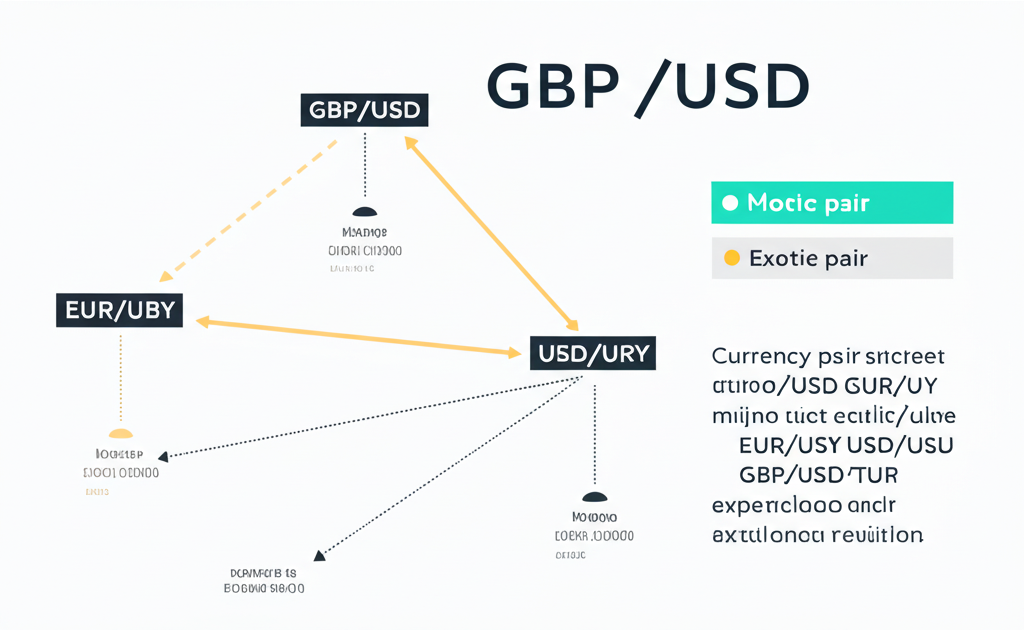
What is Forex Trading UK? Your 7-Step Guide to Smart & Safe Beginnings
Table of Contents
ToggleIntroduction: Demystifying Forex Trading in the UK

The world of finance can often feel intimidating, filled with complex terminology and inaccessible systems. Yet among all financial markets, few are as vast and fast-moving as the foreign exchange market—commonly known as Forex. For individuals across the United Kingdom, the idea of trading currencies has grown increasingly appealing, driven by the potential to capitalise on shifts in global economic conditions. But what does Forex trading actually involve? How does it function within the UK’s financial landscape? And what should new traders know before taking their first step? This guide strips away the confusion, offering a clear and practical overview of Forex trading tailored specifically for UK residents. From understanding how currency pairs work to navigating the protections offered by regulators, we’ll cover the essentials you need to make informed decisions in this dynamic market.
What Exactly is Forex Trading?

At its core, Forex trading is the act of buying one currency while simultaneously selling another. It stands as the largest and most liquid financial market on Earth, with over $7 trillion traded daily—far surpassing stock or commodity markets in volume. Unlike traditional exchanges that operate during fixed hours, the Forex market runs continuously from Monday to Friday, shifting across major financial hubs such as London, New York, Tokyo, and Sydney. This round-the-clock nature allows UK traders to respond to economic developments in real time, whether it’s a surprise central bank decision in Japan or a jobs report release in the US. The objective for most traders is straightforward: profit from changes in exchange rates. When you anticipate that the British Pound will strengthen against the US Dollar, for example, you buy the GBP/USD pair. If your prediction is correct, you sell later at a higher price and secure a gain.
Currency Pairs Explained: The Foundation of Forex

Every Forex transaction revolves around currency pairs, which represent the value of one currency relative to another. Take GBP/USD: this pair shows how many US dollars are needed to buy one British Pound. The first currency—GBP—is called the base currency, while the second—USD—is the quote currency. This pairing system is fundamental because currencies are never traded in isolation.
There are three broad categories of currency pairs, each with distinct characteristics:
- Major Pairs: These include the most widely traded currencies in the world and almost always feature the US Dollar. Examples include EUR/USD, GBP/USD, USD/JPY, USD/CHF, AUD/USD, USD/CAD, and NZD/USD. Due to high trading volumes, majors typically offer tight spreads and excellent liquidity, making them ideal for beginners.
- Minor Pairs (Crosses): These pairs exclude the US Dollar but combine two other major currencies. Common examples are EUR/GBP, GBP/JPY, and EUR/CHF. While still actively traded, they generally have lower liquidity and slightly wider spreads than major pairs. However, they can provide unique opportunities based on regional economic trends.
- Exotic Pairs: These pair a major currency with one from an emerging or smaller economy, such as USD/TRY (Turkish Lira), EUR/MXN (Mexican Peso), or GBP/ZAR (South African Rand). Exotics tend to be more volatile and less liquid, often resulting in larger spreads. They may appeal to experienced traders comfortable with higher risk, but they require extra caution due to unpredictable price swings.
How Does Forex Trading Work in the UK? The Mechanics
In the UK, retail traders access the Forex market through online brokers, which serve as intermediaries to the interbank market where large financial institutions trade. These platforms allow individuals to speculate on currency movements without owning the actual currencies. When you place a trade, you’re essentially making a bet on whether the base currency will rise or fall in value compared to the quote currency.
If you believe the Pound will strengthen against the Dollar, you open a “buy” position on GBP/USD. Conversely, if you expect the Pound to weaken, you “sell” the pair. Your profit or loss is determined by the difference between your entry and exit prices, multiplied by the size of your trade. Most UK traders engage in Forex via Contracts for Difference (CFDs), which allow speculation on price movements without taking ownership of the underlying asset. While CFDs offer flexibility and access to leverage, they also come with heightened risk—particularly because losses can exceed initial deposits, although FCA regulations now protect retail clients from negative balances.
Key Concepts: Pips, Lots, Spreads, and Leverage
To trade effectively, it’s essential to understand a few foundational terms:
- Pips (Percentage in Point): A pip is the smallest incremental move a currency pair can make. For most pairs, this is 0.0001 (the fourth decimal place), while for JPY pairs, it’s 0.01 (the second decimal place). For example, if GBP/USD moves from 1.2500 to 1.2505, that’s a 5-pip increase. Profits and losses are measured in pips, and their monetary value depends on your trade size.
- Lots: Forex trades are executed in standardised units called lots. A standard lot equals 100,000 units of the base currency, a mini lot is 10,000 units, and a micro lot is 1,000. Smaller lot sizes make Forex accessible to traders with limited capital, allowing for finer control over risk exposure.
- Spreads: The spread is the difference between the bid (selling) price and the ask (buying) price of a currency pair. It acts as the broker’s fee for facilitating the trade. Tighter spreads are generally better for traders, especially those who trade frequently, as they reduce transaction costs. Major pairs usually have the narrowest spreads due to high liquidity.
- Leverage: Leverage enables traders to control a larger position with a smaller amount of capital, known as margin. For instance, with 1:30 leverage, a trader can control £30,000 worth of currency with just £1,000. While this amplifies potential gains, it also increases the risk of significant losses. The FCA strictly limits leverage for retail traders to 1:30 on major pairs to curb excessive risk-taking.
Market Participants: Who Trades Forex?
The Forex market is powered by a diverse network of participants, each playing a different role:
- Central Banks: Institutions like the Bank of England or the US Federal Reserve intervene in the market to influence monetary policy, control inflation, or stabilise their national currency.
- Commercial Banks: Major banks such as HSBC, Barclays, and JPMorgan facilitate large-volume currency transactions for clients and engage in proprietary trading, contributing to market liquidity.
- Investment and Hedge Funds: These organisations deploy sophisticated strategies to capitalise on currency fluctuations, often managing billions in assets.
- Multinational Corporations: Companies with international operations use Forex to hedge against currency risk. For example, a UK-based firm importing goods from the US might lock in an exchange rate to avoid losses if the Dollar strengthens.
- Retail Traders: Individual traders, including UK residents, now represent a growing segment of the market. Empowered by online platforms and educational resources, they participate primarily through speculation, aiming to profit from short- or long-term price movements.
Is Forex Trading Legal and Regulated in the UK?
Yes, Forex trading is fully legal in the UK and operates under strict oversight by the Financial Conduct Authority (FCA), one of the most rigorous financial regulators globally. The FCA’s mandate includes protecting consumers, ensuring market fairness, and preventing financial crime. For retail traders, this oversight translates into meaningful safeguards that significantly reduce the risk of fraud or malpractice.
Key protections enforced by the FCA include:
- Negative Balance Protection: Retail traders cannot lose more than their deposited funds. Even in volatile markets, your account balance will not drop below zero, preventing debt accumulation.
- Leverage Limits: To discourage excessive risk, the FCA caps leverage at 1:30 for major currency pairs, 1:20 for minor pairs, and 1:10 for exotic pairs and other instruments like gold and indices.
- Client Money Segregation: All client funds must be held in separate, ring-fenced accounts at regulated banks. This ensures that even if a broker faces financial difficulties, client money remains protected and available for withdrawal.
- Financial Services Compensation Scheme (FSCS): In the rare event that an FCA-authorised broker fails, eligible clients may receive compensation of up to £85,000 under the Financial Services Compensation Scheme.
These regulations make the UK one of the safest jurisdictions for retail Forex trading, offering a level of security not always found in offshore or unregulated markets.
Benefits of Trading Forex for UK Traders
Forex trading presents several advantages that make it particularly attractive to UK-based investors:
- High Liquidity: With trillions traded daily, the Forex market allows for quick entry and exit with minimal slippage. This means orders are typically filled at or near the desired price, especially for major pairs.
- 24-Hour Market Access: The Forex market operates around the clock from Sunday evening to Friday afternoon, aligning well with different time zones. UK traders can engage during the London session, overlap with the New York session, or monitor Asian markets—all from the comfort of home.
- Low Transaction Costs: Most brokers earn revenue through spreads rather than commissions, keeping trading costs relatively low—especially on major pairs where spreads can be as tight as 0.1 pips.
- Potential for Portfolio Diversification: Adding Forex to a traditional investment portfolio introduces exposure to global macroeconomic trends, reducing reliance on domestic assets like UK equities or bonds.
- Accessibility: Thanks to user-friendly platforms and low minimum deposits—some brokers allow accounts to be opened with as little as £50—Forex trading is now within reach for a wide range of UK investors.
Understanding the Risks of Forex Trading
Despite its appeal, Forex trading carries significant risks that must be taken seriously. The FCA consistently warns that a high proportion of retail investors lose money when trading CFDs, the most common method used in Forex. Key risks include:
- Market Volatility: Currency values can swing rapidly due to unexpected events—such as political instability, economic data surprises, or central bank interventions. While volatility creates trading opportunities, it can also lead to steep, sudden losses.
- Leverage Risk: Although leverage can boost returns, it magnifies losses just as quickly. A small adverse move in a highly leveraged position can result in a margin call or complete loss of capital. Even with FCA-imposed limits, leverage remains a powerful tool that demands discipline.
- Interest Rate Risk: Changes in monetary policy directly affect currency values. For instance, if the Bank of England raises interest rates while the US Federal Reserve holds steady, the Pound may appreciate against the Dollar. Traders must monitor central bank communications closely.
- Political and Economic Risks: Events like elections, trade disputes, or geopolitical tensions can trigger sharp currency movements. The 2016 Brexit referendum, for example, caused the Pound to plummet against major currencies, catching many traders off guard.
- Complexity: Successful trading requires a solid grasp of economic indicators (such as GDP, inflation, and employment data), technical analysis, and global news. Beginners who jump in without proper education often struggle to achieve consistent results.
Forex Trading for Beginners in the UK: Getting Started Responsibly
Entering the Forex market should be approached with caution, preparation, and a long-term mindset. It’s not a shortcut to wealth, but rather a skill that develops over time through study, practice, and disciplined execution.
Choosing an FCA-Regulated Broker
Selecting the right broker is the most critical decision for any UK trader. Always verify that a broker is authorised and regulated by the FCA through the official FCA Register. When comparing brokers, consider the following:
- Regulation: Confirm FCA authorisation and check for any regulatory warnings or enforcement actions.
- Fees and Spreads: Review average spreads, commission structures, and financing charges for holding positions overnight (swap rates).
- Trading Platform: Look for platforms like MetaTrader 4, MetaTrader 5, or cTrader, known for their reliability, charting tools, and customisability. Some brokers also offer proprietary platforms with unique features.
- Customer Support: Reliable support via phone, email, or live chat can be invaluable, especially when technical issues arise.
- Educational Resources: Reputable brokers provide free tutorials, webinars, market analysis, and glossaries to help new traders build knowledge.
Starting with a Demo Account
Before risking real money, every beginner should spend time using a demo account. Most FCA-regulated brokers offer free demo accounts with virtual funds, allowing you to:
- Learn how to navigate the trading platform without financial consequences.
- Test different strategies, such as trend following or breakout trading.
- Observe how economic news—like inflation reports or employment data—affects currency pairs.
- Build confidence and emotional resilience in a risk-free environment.
Treating the demo account seriously—by applying the same discipline as with real funds—can significantly improve your chances of success when you transition to live trading.
Developing a Basic Trading Strategy
A trading strategy provides a structured approach to entering and exiting trades. Beginners don’t need complicated systems; a simple, well-defined plan is often more effective. Two foundational strategies include:
- Trend Following: This involves identifying the direction of the prevailing market movement—upward, downward, or sideways—and placing trades in alignment with that trend. Tools like moving averages or trendlines can help spot these patterns.
- Range Trading: In markets with no clear trend, currency pairs often move between identifiable support and resistance levels. Traders buy near support and sell near resistance, capitalising on price oscillations within a defined range.
Your strategy should clearly outline entry and exit rules, risk parameters, and position sizing. Once established, stick to it consistently and avoid emotional decision-making.
Managing Your Capital and Risk
Risk management is the cornerstone of sustainable trading. The goal isn’t to win every trade, but to survive losses and grow capital over time. Effective techniques include:
- Position Sizing: Limit each trade to 1–2% of your total account balance. This ensures that a string of losing trades won’t wipe out your capital.
- Stop-Loss Orders: Set a stop-loss to automatically close a trade if the market moves against you by a predefined amount. This prevents small losses from turning into catastrophic ones.
- Take-Profit Orders: Secure profits by setting a take-profit level, ensuring you lock in gains when the market reaches your target.
By integrating these practices, you create a disciplined framework that protects your account and supports long-term growth.
Beyond the Basics: Other Considerations for UK Forex Traders
Forex Trading Apps in the UK
Mobile trading apps have transformed the way UK traders interact with the Forex market. With powerful smartphones and reliable internet, you can now monitor price action, execute trades, and manage risk from virtually anywhere. Most reputable brokers offer dedicated apps for iOS and Android that mirror the functionality of desktop platforms.
Key features to look for in a Forex trading app include:
- Real-time price quotes and charting tools.
- Full order execution capabilities, including stop-loss and take-profit.
- Push notifications for market news, economic events, and price alerts.
- Secure login methods, such as biometric authentication and two-factor verification.
Always download apps directly from your broker’s official website or trusted app stores to avoid counterfeit or malicious software.
Is Forex Trading “Halal” in the UK?
For Muslim traders in the UK, the permissibility of Forex trading under Islamic finance principles is an important consideration. Traditional trading often involves earning or paying interest (known as “swap” or “rollover” fees) when positions are held overnight. Since the charging or receiving of interest (Riba) is prohibited in Islam, standard accounts may not be considered Halal.
To address this, many FCA-regulated brokers offer Islamic or swap-free accounts. These accounts eliminate overnight interest charges, replacing them with alternative arrangements—such as a small administrative fee or slightly wider spreads—that align with Sharia law. While these accounts remove the issue of Riba, traders should still consult with a qualified Islamic scholar to ensure full compliance with religious principles.
Conclusion: Is Forex Trading for You?
Forex trading offers a compelling opportunity for UK residents interested in global finance, economic trends, and independent investing. Backed by strong regulation from the FCA, the UK provides a safer environment for retail traders than many other jurisdictions. However, it’s vital to remember that Forex is not a guaranteed path to profit. Market volatility, leverage, and emotional decision-making mean that many traders face losses, especially in the early stages.
Long-term success requires more than just technical knowledge—it demands patience, emotional control, and a commitment to continuous learning. Start with education, use a demo account to build experience, choose a reputable broker, and never risk more than you can afford to lose. With the right mindset and approach, Forex trading can become a meaningful part of your financial journey.
Frequently Asked Questions About Forex Trading in the UK
How does forex trading work in the UK for beginners?
For beginners in the UK, Forex trading involves speculating on currency price movements through an online broker. You open an account, deposit funds, and use a trading platform to buy one currency while simultaneously selling another (a currency pair). The goal is to profit if the currency you bought strengthens against the one you sold. It’s crucial to start with a demo account to practice without real money and choose an FCA-regulated broker for safety.
What exactly do forex traders do on a daily basis?
On a daily basis, Forex traders typically monitor market news and economic data releases (e.g., interest rate announcements, inflation reports), analyse charts for technical patterns, identify potential trading opportunities, place buy or sell orders, and manage their open positions by setting stop-loss and take-profit levels. They also review past trades to learn and refine their strategies.
Is forex trading good for beginners in the UK, and what are the initial steps?
Forex trading can be challenging for beginners due to its complexity and risks. However, with proper education, risk management, and discipline, it can be a viable pursuit. Initial steps include:
- Educating yourself on Forex fundamentals.
- Choosing an FCA-regulated broker.
- Practicing with a demo account.
- Starting with a small amount of capital you can afford to lose.
- Developing a basic trading strategy.
Is forex trading legal in the UK, and which authority regulates it?
Yes, Forex trading is legal in the UK. It is regulated by the Financial Conduct Authority (FCA). The FCA imposes strict rules on brokers, including client money segregation, leverage limits (1:30 for major pairs for retail traders), and negative balance protection, to safeguard retail investors.
What are the main risks associated with forex trading in the UK, and how can they be managed?
Main risks include market volatility, the magnified losses due to leverage, and political/economic events impacting currency values. Risks can be managed by:
- Using stop-loss orders to limit potential losses.
- Never risking more than 1-2% of your capital per trade.
- Avoiding over-leveraging.
- Continuously educating yourself and staying informed.
- Diversifying your portfolio.
Are there specific forex trading apps recommended for users in the UK?
While specific app recommendations can vary, most reputable FCA-regulated brokers offer their own mobile trading apps, often supporting popular platforms like MetaTrader 4 (MT4) or MetaTrader 5 (MT5). It’s best to choose an app provided by your chosen FCA-regulated broker, ensuring it offers robust security, real-time data, and a user-friendly interface.
What is the typical starting capital required for forex trading in the UK?
The minimum starting capital for Forex trading in the UK can vary significantly between brokers, often ranging from as little as £50 to £250. However, it’s generally recommended to start with a more substantial amount, such as £500-£1,000, to allow for better risk management and to absorb initial losses without depleting your account too quickly.
Is forex trading considered “halal” under Islamic finance principles, and are there options for UK traders?
Conventional Forex trading, which involves overnight interest (swap fees), is generally not considered “Halal” due to the prohibition of Riba (interest) in Islamic finance. However, many brokers in the UK offer “Islamic accounts” or “swap-free accounts” that eliminate these interest charges. These accounts typically adhere to Sharia principles, often by replacing swap fees with an administrative fee. Muslim traders in the UK should seek brokers offering such options.
How easy is it to learn and potentially succeed in forex trading in the UK?
Learning the basics of Forex trading is relatively easy, but mastering it and consistently succeeding is considerably challenging. It requires dedication to continuous learning, developing a disciplined trading psychology, understanding complex market dynamics, and effective risk management. Many retail traders lose money, so success is far from guaranteed and often takes years of practice.
What are some fundamental strategies for forex trading that UK beginners can consider?
Beginners in the UK can start by exploring fundamental strategies such as:
- Trend Following: Identifying a clear market trend and trading in that direction.
- Support and Resistance: Trading currency pairs as they bounce off established price levels.
- Range Trading: Identifying periods where a currency pair trades within a defined high and low range.
It’s important to test any strategy extensively on a demo account before applying it with real capital.
You may also like
Calendar
| 一 | 二 | 三 | 四 | 五 | 六 | 日 |
|---|---|---|---|---|---|---|
| 1 | 2 | 3 | 4 | 5 | 6 | 7 |
| 8 | 9 | 10 | 11 | 12 | 13 | 14 |
| 15 | 16 | 17 | 18 | 19 | 20 | 21 |
| 22 | 23 | 24 | 25 | 26 | 27 | 28 |
| 29 | 30 | 31 | ||||
發佈留言
很抱歉,必須登入網站才能發佈留言。